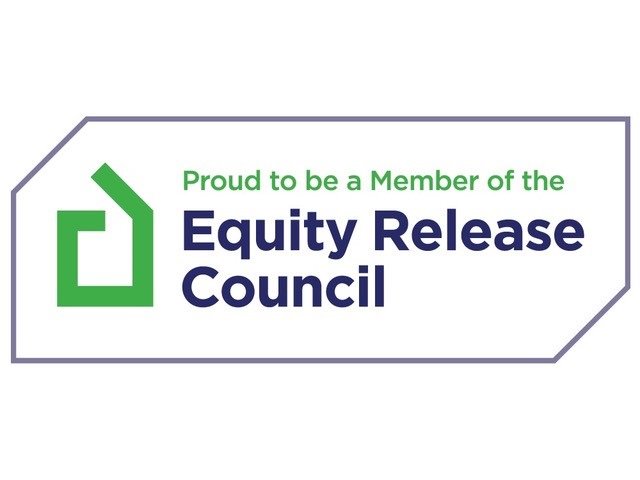EQUITY RELEASE ADVICE
LIFETIME MORTGAGES & HOME REVERSION PLANS
Our Worker Bees Will Seek Out The Best Lifetime Mortgage Deals For You!
Are you aged over 55 and own your own home? Worried about paying off your existing mortgage? Looking to raise funds? Equity release maybe worth considering.
You could release the tax-free cash tied up in your home, without having to sell up and downsize.
If you would like to see what options are available to you, Call or complete the Form for Free advice!
Find our equity release services in the following locations; Bournemouth, Christchurch, Poole and London.
Unlock the Cash in Your Home, Tax Free
Continue to live and Own 100% of Your Own Home
Your Choice Whether to Make Monthly Payments
Offers an efficient and professional service
Retirement Mortgage on Pension Income

Your Situation Is Unique
So Is Our Advice.
The Amount of equity you can release will vary from lender to lender. It is dependant on the age of the youngest applicant. (Needs to be over 55). We have access to the whole market, so can find which lender best matches your circumstances.
You can continue to live in your own home until you die or go in to long term care. However it is possible to move the lifetime mortgage over to a new property. Equity release is an important decision, we will look at all your options before deciding if equity release is right for you.
What is Equity Release?
Equity release is a way of releasing tax-free money that you have tied up in your home.
Some equity release products allow you to get an initial cash release upfront, then give you the facility to drawdown extra money at a later date. The money you borrow from releasing equity is paid back when all applicants either pass away or go into long-term care.
We are Independent equity release advisers, we access the whole of the market and only use regulated lenders.
Who is Eligible for Equity Release?
Anyone over the age of 55 is eligible for an equity release product. Some lenders will allow applicants to apply leading up to their 55th birthday.
If the property is jointly owned, the lender will always use the youngest applicant’s age.
Unlike traditional mortgages, you will have no commitment to make payments. Therefore there is no minimum income requirement, as no affordability calculation is done. The amount of money you can release is solely decided on the youngest applicant's age & the property value.
There will be a credit check, but there are still options for those with poor credit. More on how we can help with poor credit below.
Lenders will need to make sure that the property is suitable security to lend against, most but not all Lenders will also offer a free property valuation. The maximum amount you can release will be dependant on the valuation of the property and the age of applicants.
You do not need to be a homeowner to apply for Equity Release, it is possible to use a Lifetime Mortgage to help finance the purchase of your new home.
The Mortgage Hive Strongly recommends that you discuss with your family all the advice offered by our experts

What is the difference between Equity Release and a Lifetime Mortgage?
We offer a large range of equity release products available from Reputable lenders. There are 2 different Equity Release products:
Lifetime Mortgages
Home Reversion Plans
Both enable you to release money tax-free that has been tied up in the value of your property.
99% of Equity Release applications that we currently advise on are Lifetime Mortgages.
We will always make sure that our free advice has your best interests at heart & our confident that we will select the right company & equity release plan that best suits your current circumstances & future plans.
A Lifetime Mortgage allows you to continue to own your home, this means you will still benefit from any future increases to the value of your home. Different funders also offer various product benefits. For example
You can choose to make “optional” payments.
You could choose to initially take a lump sum then drawdown additional funds later on when required.
You can have inheritance protection. To safeguard leaving a minimum equity percentage to your estate beneficiaries.
When you pass away or go into long-term care, the property will be sold to repay, the Equity Release Loan. Any remaining proceeds will be transferred to your estate.
Home reversion plans are rarely the best option for a client. Ownership of your property is effectively sold to the funder, you then become a lifelong tenant. Living in the property rent-free until you pass away or go into long-term care.
However, Equity Release is not just limited to releasing money from your current home.
At the Mortgage Hive, we often meet clients around Bournemouth and throughout Dorset who are looking to move home or even purchase their first home, It maybe possible for you to use an Equity Release product to raise the finance required.
We Offer Fee Free Advice On All Of Our Products.
How Much Money Can I Borrow?
The minimum amount you can raise is £10,000
The maximum amount you can borrow is dependent on 2 factors
1/The value of your property
2/The Age of the Youngest applicant
The older the youngest applicant is, the larger the percentage you can take out.
For Example, someone aged 55 may be able to release 31 % of the property value. Someone aged 85 may be able to release 58% of the property value.
Most lenders increase the maximum you can release by about 1% extra each birthday.

What Can I Use The Released Funds For?
At the Mortgage Hive we see a wide variety of reasons clients release money, some of the most common are:
Reducing, Consolidating Debt
Paying Off an Existing Mortgage
Buying A New Home
Home & Garden Improvements
Boosting Retirement Income
Improving Lifestyle, Holidays, New Car
Medical Bills Or Care At Home
Helping Loved Ones With School Or University Fees
Helping Family To Get On The Property Ladder.
Purchasing A Second Home, Either In The UK Or Abroad
What Is The Equity Release Council? Is It Safe? Is It Regulated?
The Mortgage Hive is regulated by the Financial Conduct Authority #844138. All the lenders we advise on are also regulated by the FCA.
The Financial Conduct authority (FCA) ensures that only companies regulated and approved can offer advice, making sure that companies always put the customers best interests first. All the lenders we use are also members of the Equity release Council, They agree to follow the rules and adhere to the equity release council's state of principles.
View The Equity Release Council Here
Why Equity Release previously had a bad reputation!
Back in 1980s and 90s the sector was poorly regulated. People could end up owing thousands more than their property was worth. Lenders would purse the borrowers children and beneficiaries to pay and settle the debts.
Now the market is regulated by the FCA and the lenders sign up to adhere by the equity release councils principles this is no longer an issue.
Can I Owe More Than The Property Value?
NO, Lenders have a no Negative Equity Guarantee
As all the providers we use are part of the equity release council. They all offer a No Negative equity guarantee. So even if you took the mortgage out at Age 55, Lived until you were 110 & Property prices decreased, You decided never to make an optional payment. The compound interest will never exceed the property value.
You will never be in a situation where the lender can take other assets from your estate. The loan is secured only against the property, and the maximum it can ever be, is equal to the value of your home.

Lifetime Mortgage, Lump Sum or a Draw Down Plan?
With a Lump Sum Plan. You release all the cash your require from the lifetime mortgage in one go at the onset. Ideal if you know you want the money for and have immediate plans.
Possible to lock in a fixed interest rate for the rest of your life.
Can be expensive if you have the possibility later on you want to release more money. As a new Valuation and legal work will be required.
A drawdown lifetime mortgage will allow you to release an initial lump sum, then release extra cash at a later date.
This is ideal if you wish to use the funds for various projects at different timescales or to help more than one family member.
You will only be charged interest on the amount you have actually released.
However any future releases of money will be on the lenders prevailing rate.
No additional costs for future cash release such as a new valuation or additional Legal Work
What Costs Do I Have? What Are The Interest Rates? Can I Make Payments?
What Will It Cost?
The Mortgage Hive Offers Fee Free Advice and does not charge clients any fees.
All providers pay brokers a procuration fee for introducing business. So we are only paid if successful in finding a solution for you that proceeds. The vast majority of brokers will also directly charge the client a fee, for advice or brokerage. However, at the Mortgage Hive, all the mortgage advice we give is Fee-Free.
In the process of proceeding with Equity Release, You may find you will have some of the following costs:
A Product Fee From The Equity Release Lender
Valuation Fee For The Property
Solicitor Costs
At the Mortgage Hive we are a whole of the market lender, we will source the cheapest & most appropriate lender for your circumstances. Rates are highly dependent on the amount you release as a % of the property value. The lowest rates offered are competitive with standard and retirement mortgages. These rates start from under 3%.
We will generate a personalised illustration. The information contained in your personalised lifetime mortgage illustration will show you the interest rate applicable, in most cases, this rate will be fixed for life. The interest rates vary greatly between each lender. We have your best interest at heart and will check the whole of the market. This is to make sure you get the best interest rates available to you.
Repaying Back The Loan & Optional Repayments.
Equity Release Mortgages do not have to be paid back, no repayments are required. Instead, the loan is repaid when the applicant(s) Passes away or goes into long-term care.
With a lot of the Equity Release lenders, you can make optional payments. Some will allow you to make as many payments as you like, with a minimum amount each time.
However, there is usually a maximum you can pay back within a calendar year. Some will be 10% of the current balance, another lender could be 10% of the original amount borrowed.
Our expert advisers will find the most suitable product for you, depending on your circumstances and future plans.
Early Repayment Charges.
If you were to pay the whole loan off early, you could have extensive early repayment charges.
These can be fixed or linked to the gilt market, which will make the charges variable. Our expert free advisers will find the most suitable product for you & your circumstances.
Significant Life Event Exemption
Some lenders will also have a policy called 'A Significant life event exemption'. This will allow the surviving partner to choose if they wish to repay the loan while avoiding an early repayment charge. Lenders often allow up to 3 years following the passing of one of the property owners, so they have time to decide how they wish to live moving forward.

Credit Check
The lender will carry out a credit check
But it is possible to get Equity Release with a poor credit rating. Such as previous Bankruptcy, IVAs, CCJ, Defaults, Late Payments.
We would always suggest its a good idea to get a copy of your credit repot.
Check My File, Will check all 3 big UK credit agencies for you (Experian, Equifax, TransUnion) and let you download the report as a PDF to email over. They offer a free 30 days subscription, after which you can choose to carry on or not. Get Your Credit Report Here
Moving Home, Can I Transfer My Lifetime Mortgage?
Yes, most providers will let you transfer your existing lifetime mortgage to a new property.
Downsizing Protection
However, if downsizing you may find you are required to pay back some of the lifetime mortgage.
This is often called Downsizing protection an exemption offered by some funders, it allows clients to pay back early when they move home, without incurring any early repayment charges.
Will It Affect My Benefits?
Yes it could be possible that drawing-down money in your home to put into your savings could have an effect on means-tested benefits
Equity Release isn't typically classified as an income as it's effectively a loan against your house.
However, keeping the money in cash savings could take you above the threshold to receive certain means-tested benefits such as:
Housing Benefit
Child Tax Credit
Working Tax Credit
Income Support
Job Seeker Allowance (JSA)
Employment & Support Allowance (ESA)
These benefits are slowly being replaced by Universal Credit.
If you currently have less than £6000 in savings, you have to declare the money but it won't affect your universal credit amount.
Between £6001 and £16000 will impact your benefits by reducing the amount you are awarded. Above £16,000, you will not be eligible to claim Universal Credit.
If you have pension credit to top up your basic state pension this can also be affected. Unless it's with an indefinite assessed income period.
Can I Still Leave An Inheritance?
Yes absolutely, we offer certain products that ensure a percentage of your home is protected, for that purpose, you can ring-fence a value of your property so you can make sure you are leaving something behind for your loved ones. Our Expert Advisers Will Give Free Advice Explaining Your Options.

Can I lose my house?
NO! As you have no monthly commitment, it is impossible to default on payments. You will stay in your home until you pass away or go into permanent long term care
